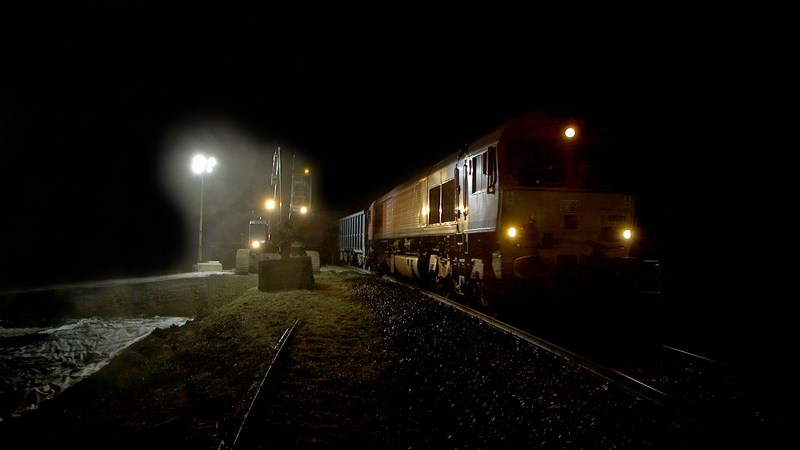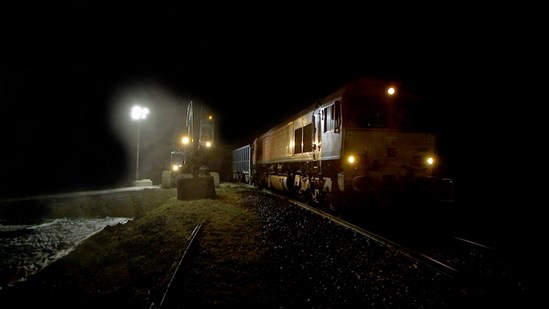The first freight train has arrived at HS2’s main construction compound in Buckinghamshire, as work continues to prepare for the start of construction across the central section of Britain’s new high-speed railway.
Over the next year, more than 180 freight trains are set to deliver material to the site taking the equivalent of 12,670 trucks (HGVs) off the road and saving 30,150 tonnes of carbon – the equivalent of flying from London to Edinburgh 930 times.
The train – operated by DB Cargo UK and Hanson – delivered 1,650 tonnes of aggregate that will be used in the construction of the temporary Calvert Railhead.
Across the whole HS2 project, 15,000 freight trains are set to be used to haul 10 million tonnes of aggregate to construction sites – taking the equivalent of 1.5 million HGVs off the UK’s road.
The 26,200 sq/m Calvert Railhead site is roughly halfway between London and Birmingham and will be run by HS2’s main works contractor EKFB – a team made up of Eiffage, Kier, Ferrovial and Bam Nuttall. EKFB are delivering the 80km central section of the route, including 17 viaducts, 81 bridges and three ‘green tunnels’ and are set to create 4,000 jobs over the next two years.
HS2 Project Client Director, Ambrose McGuire said:
“We are serious about reducing the impact of construction on the local community and promoting sustainable construction methods. That’s why I’m so pleased to see the arrival of the first material into Calvert by rail instead of road.
“We’ve been working closely with Network Rail, EKFB and the Freight Operators for a number of years to make this possible, and to deliver not only low carbon journeys for our passengers, but also cut carbon in construction.”
EKFB Operations Director, Peter Bimson said:
“We are delighted to be at the forefront of carbon reduction in the construction industry, and bringing this aggregate into Calvert by train instead of road is not only more efficient, but significantly reduces our impact on the environment.
“Removing thousands of HGVs from the roads in the Calvert area also demonstrates our commitment to the local community in delivering EKFB’s section of the HS2 project with as little impact as possible.”
At the peak of construction, more than 650 people will work at the Calvert Railhead, stockpiling materials and managing the logistics and construction of the central section of the new railway. Once HS2 is complete, the railhead will be removed and the site landscaped, leaving only a small infrastructure maintenance depot.
The railhead is also next to a section of disused railway which is set to be brought back into local passenger use as part of the East-West rail project which will link Oxford, Milton Keynes, Bedford and Cambridge. The two teams are working closely together on their construction plans and a bridge will be installed to allow HS2 to pass under the reopened railway.

